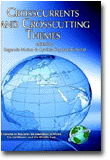
Crosscurrents and Crosscutting Themes
Edited by:
Kagendo Mutua, University of Alabama
Cynthia S Sunal, University of Alabama
A volume in the series: Research on Education in Africa, the Caribbean, and the Middle East. Editor(s): Cynthia S Sunal, University of Alabama. Oluseyi Matthew Odebiyi, Arizona State University. Kagendo Mutua, University of Alabama.
Published 2006
In this Third Volume of the series, Research on Education in Africa, the Caribbean and the Middle East, the volume continues with the previously established overarching purpose of publishing chapters that are based upon research conducted in those regions by scholars, many of whom are indigenous to the regions they write about and are, therefore, able to provide cultural insights about relevant issues, as well as nonindigenous scholars who have conducted their studies in countries within the regions or about those regions. This mixture of indigenous scholarship offering emic perspectives and outside scholarship offering etic perspectives continues to be a relative strength and uniqueness of this book series. In addition, several chapters in the current volume constitute collaborations between the authors etic and emic to the contexts about which they write. This bifocality in the gaze cast upon issues covered in this book series has been well received by readers of earlier volumes of the series.
CONTENTS
Introduction. Multiple Contexts of Crosscurrents and Crosscutting Themes: An Introduction, Kagendo Mutua and Cynthia Szymsnski Sunal. Part I. Research in Africa. Interaction in the Classroom: A Case Study of a Nigerian Teacher, C. Sunal and R. Rufai. The Kenya Literacy Project: Addressing the Achievement Gap through Collaboration and Partnership, Moses Mutuku, Randi Wolfe, and Maylan Dunn. A Study of Selected Science Teaching Practices in Benin: (west-Africa): Examining Teachers’ Perceptions of Teaching, Gado Issaou. Procedures Used, Misused, and Abused: English Literacy Instruction in a First Grade Classroom in Ghana, Amma K. Akrofi. The Education of the Hausa Girl-Child in Northern Nigeria, Ruqayyatu Ahmed Rufa’i. AIDS In Zimbabwe, Hala Elhoweris and Gowri Parameswaran. Part II. Research in the Caribbean. Elementary School Teachers in Trinidad and Tobago: Demographic Patterns, Qualifications, and Self-Efficacy, Frank C. Worrell, Marley W. Watkins and Trace E. Hall. Under the Afro Tree: Perceptions of the School Related Experiences of British Virgin Islands High School Students, Kathy-Ann Hernandez. The Influence of Pre-Service Teachers’ Selected Personal Characteristics, Locus of Control, Self-Efficacy, and Perceptions on Job Satisfaction and Career Decisions in Jamaica, Wilton A. Barham, Reubenson Wanjohi, and Vernon Farmer. Principal Leadership: Challenges and Responses in an Era of Reform. A focus on Trinidad and Tobago, Launcelot Brown and Dennis Conrad. Part III. Research in the Middle East. Beliefs of Turkish Preservice Elementary Teachers Regarding Science Teaching Efficacy and Classroom Management, Ayse Savran, Jale Cakiroglu and Erdinç Çakrolu. “Postcoloniality and Learning Disability in Kuwait: Cycle or Downward Spiral? Maysaa S. Bazna, Tarek Hatab. Turkey: Paradigm Change in Education, Necmi Aksit and Margaret Sands. Investigating Turkish Preservice Science Teachers’ Views of the Nature of Science, Rahsan Erdogan Jale Cakiroglu Ceren Tekkaya. The Impact Of The “Gulf State Phenomenon” On Teaching In Iran, Bahrain, and Saudi Arabia, Alexander W. Wiseman. Epilogue, Haoua Hamza.
-
Paperback978-1-59311-467-1
Web price: $45.04 (Reg. 52.99)
-
Hardcover978-1-59311-468-8
Web price: $80.74 (Reg. 94.99)
- eBook9781607528029

-
 Advances in Special Education Research and Praxis in Selected Countries of Africa, Caribbean and the Middle East
Advances in Special Education Research and Praxis in Selected Countries of Africa, Caribbean and the Middle East
-
 Effects of Government Mandates and Policies on Public Education in Africa, the Caribbean, and the Middle East
Effects of Government Mandates and Policies on Public Education in Africa, the Caribbean, and the Middle East
-
 Research on Education in Africa, the Caribbean, and the Middle East
An Historic Overview
Research on Education in Africa, the Caribbean, and the Middle East
An Historic Overview
-
 Research on the Influences of Educational Policy on Teaching and Learning
Research on the Influences of Educational Policy on Teaching and Learning
-
 The Enterprise of Education
The Enterprise of Education
-
 Transforming Public Education in Africa, the Caribbean, and the Middle East
Transforming Public Education in Africa, the Caribbean, and the Middle East
-
 Undertaking Educational Challenges in the 21st Century
Research from the Field
Undertaking Educational Challenges in the 21st Century
Research from the Field

